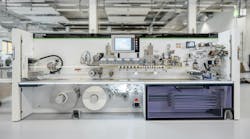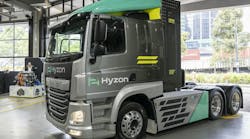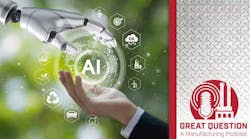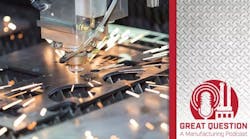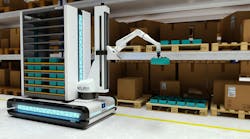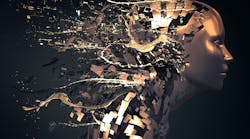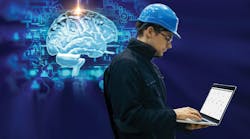It's 2 a.m. on production day and I have a million things to do. There are pages to edit, layouts to approve, plans to make, strategies to define. And this note to write, which should have been written hours ago.
Instead, I just spent four hours shuffling emails.
It's a simple, brainless job—product submissions go into product folders, story submissions go into story folders, leads are forwarded to writers, important messages are flagged (again) to remind me to respond. Takes almost no thought at all. But it does take time—and it's necessary. With the volume coming through my inbox, I have to stay vigilant to avoid missing important releases and notes, or just to avoid maxing out my storage. And I am not vigilant.
So here I am—family asleep, city asleep, world asleep—filing endless emails instead of making a magazine.
This, I think, is a very normal plight of modern workers. All of us have certain core functions, certain core capabilities we were hired for. But we also have all of these peripheral tasks we have to perform in addition to those core jobs—paperwork and documentation and all of the simple computer stuff literally anyone could do.
And so we find ourselves trying to carve out slivers of time—even at ridiculous hours like this—to do what should be the most important parts of our days. To do the things we're actually here to do.
Which brings me—now at 2:30 a.m.—to the point: Artificial Intelligence.
There are a lot of very smart people out there, for whom I hold a great deal of respect, who are absolutely terrified of AI. They warn of doomsday scenarios, world-controlling potential, elaborate '80s tech movie plotlines. And, sure, a lot of that is probably valid and those geniuses probably really should be working it all out. But from a general user's point of view, I see nothing but gains from the technology.
As John Hitch wrote in his cover story this month, "Smart(er) Manufacturing: How AI Is Changing the Industry," AI is already being incorporated into otherwise perfectly normal parts of manufacturing operations—optimizing workflows, scheduling maintenance, and doing a lot of the easy, time-consuming tasks distracting workers from their core jobs. And the early efficiency gains described in the article are already preposterous.
It seems—at least at this level—to indicate that we have before us a powerful new tool that will help us all do what we should be doing a whole lot better.
And that's a very familiar story, I think. Robots were supposed to end the world, too, right? By now, we were all supposed to be unemployed and helpless in an automated dystopia. But actually, robots have mostly just helped us stop wasting our time trying to lift giant, heavy things—which we are not made to do—or doing the same simple thing a thousand times a day—which we are also not built to do.
So really, automation is just helping us be more useful with our particular human skills—being creative, solving problems, inventing new ways to approach our jobs. The core, unautomatable human abilities that we are really here to provide.
AI seems to continue this, saving us from the annoying mundanity filling our lives and killing our productivity. I'm here to produce content for you, not check emails; you're out there trying to build something, not record the process of building it.
Systems designed to get these necessary (but aggravating) distractions out of our lives and out of our brains will only help us do what we do better.
Which is why I'm not worried—not about AI taking over our brains or automation taking over our jobs. Not that there won't be disruption, not that jobs won't change. But I see it all as a long, slow process that is refining us to our core assets—the core humanness that lets us do amazing, unimaginable things (when we have time to do them).
So, unless it really does destroy us all, I see great hope in AI. I see freedom there at the horizon, just starting to rise.
But in the meantime, I have 75 new emails to sort through because people send emails at 3:00 in the morning. And if I don't get to them now, I'll have just have to deal to them later.
Editor-in-Chief
New Equipment Digest
